Are you navigating the complex world of oil and gas industry job applications? Crafting the perfect letter can be crucial to landing your dream position in this competitive field. With the right tone and structure, you can effectively showcase your skills and passion for the industry. Join me as we dive into essential tips and templates to help you stand out in your job search!
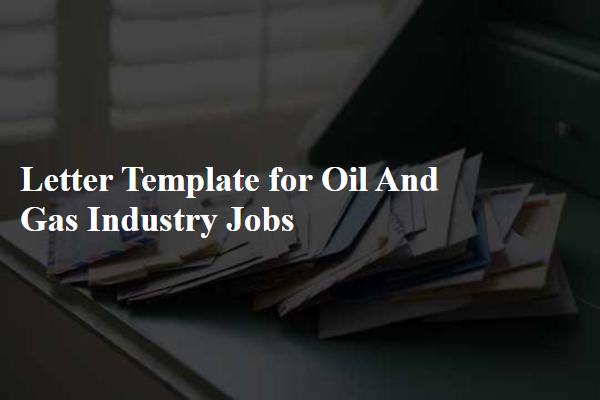
Relevant Experience
In the oil and gas industry, relevant experience encompasses various skills and knowledge gained through roles such as drilling engineer, production supervisor, or reservoir engineer. Positions in this sector often require expertise in projects involving upstream exploration, midstream transportation, and downstream refining. Professionals typically hone their abilities in geological surveys, reservoir evaluation techniques, and safety compliance, which align with industry regulations such as those mandated by the Occupational Safety and Health Administration (OSHA). Additionally, experience with advanced technologies such as hydraulic fracturing and enhanced oil recovery methods can significantly contribute to a candidate's qualifications, showcasing an ability to optimize resource extraction while adhering to environmental standards. Familiarity with international projects, especially within major oil regions like the Middle East or the Gulf of Mexico, adds a valuable dimension to one's profile in this dynamic field.
Technical Skills
In the oil and gas industry, expertise in specific technical skills is crucial for operational efficiency and safety management. Proficiency in drilling engineering techniques, such as rotary drilling and directional drilling methods, is essential for optimizing wellbore placement and reducing costs. Knowledge of reservoir management tools like enhanced oil recovery (EOR) and geological modeling software, such as Petrel or Eclipse, supports effective resource extraction planning. Understanding of safety protocols and regulatory compliance, including the Occupational Safety and Health Administration (OSHA) standards, is fundamental to maintain workplace safety in hazardous environments. Familiarity with equipment such as blowout preventers (BOPs) and offshore platforms, including semi-submersibles or jack-up rigs, enhances operational readiness and risk management. Analytical skills for interpreting seismic data and performance metrics further contribute to informed decision-making in exploration and production activities.
Industry Certifications
Industry certifications play a crucial role in enhancing the qualifications of professionals in the oil and gas sector. Notable certifications include the American Petroleum Institute (API) certifications, which set standards for equipment and operations in the industry. The International Association of Drilling Contractors (IADC) offers the Well Control certification, critical for offshore drilling operations. Additionally, the Society of Petroleum Engineers (SPE) provides various technical certifications that validate expertise in areas such as reservoir management and production optimization. Moreover, the Offshore Petroleum Industry Training Organization (OPITO) provides training standards focusing on safety and emergency response, which are vital in oil rigs and platforms. Achieving these certifications can significantly improve career prospects and demonstrate commitment to industry standards and safety protocols.
Safety Compliance Knowledge
Safety compliance knowledge is crucial in the oil and gas industry, where hazardous environments and potential risks are prevalent. Regulations such as OSHA (Occupational Safety and Health Administration) standards and API (American Petroleum Institute) guidelines govern workplace safety and operational procedures. Training involves understanding personal protective equipment (PPE) requirements, hazard communication protocols, and emergency response plans. Compliance audits assess adherence to safety regulations, ensuring that organizations minimize incidents, protect workers, and maintain environmental integrity. Facilities often employ safety officers to oversee and enforce compliance, fostering a culture of safety within companies operating in high-risk areas like offshore drilling sites or oil refineries.
Project Management Abilities
Project management in the oil and gas industry involves overseeing complex operations in exploration, extraction, and production. Professionals in this sector utilize methodologies like Agile and Waterfall to ensure timely completion of projects, which often span several months or years. Coordinating multidisciplinary teams (engineering, geology, environmental science) requires strong leadership skills and effective communication strategies. Risk management is crucial due to fluctuating market conditions, regulatory changes, and environmental concerns. Budgeting and cost control are essential elements, as projects can involve millions of dollars; for instance, a major offshore oil platform can cost over $10 billion. Additionally, adherence to safety protocols is paramount to prevent incidents and ensure compliance with industry standards such as ISO 14001.
Letter Template For Oil And Gas Industry Jobs Samples
Letter template of request for informational interview in oil and gas sector
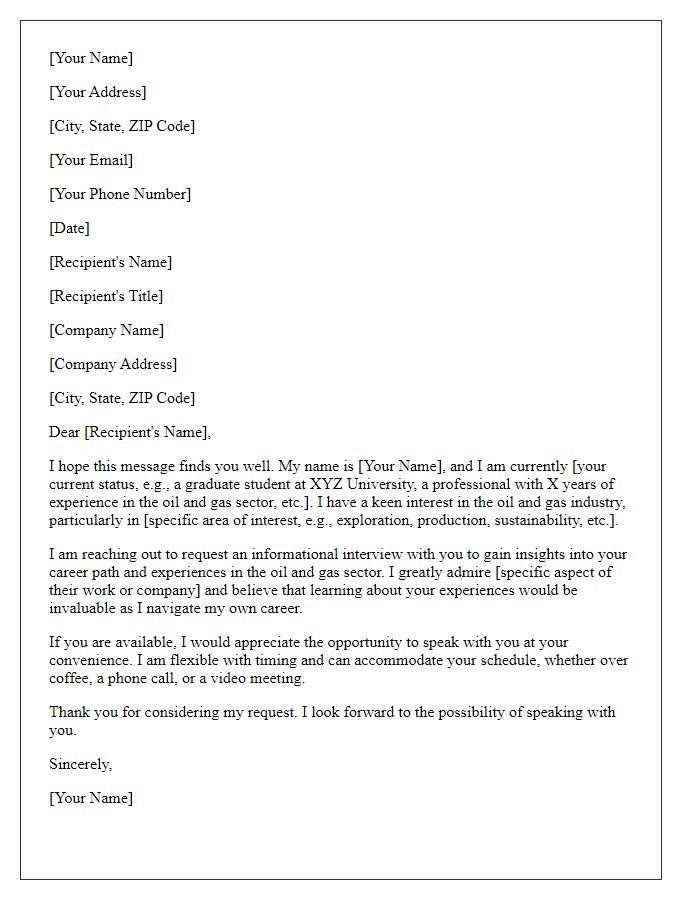

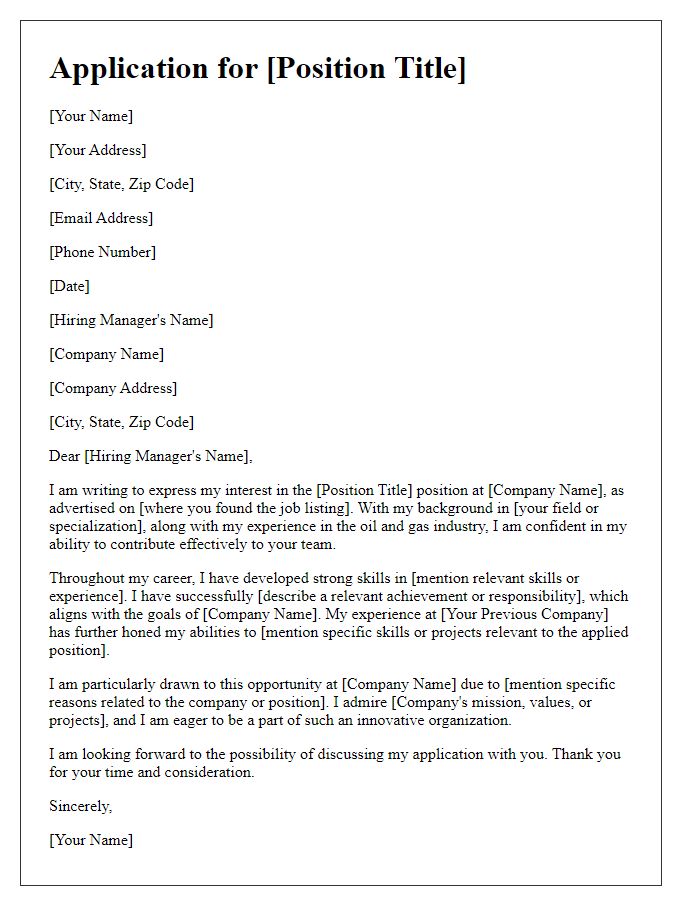
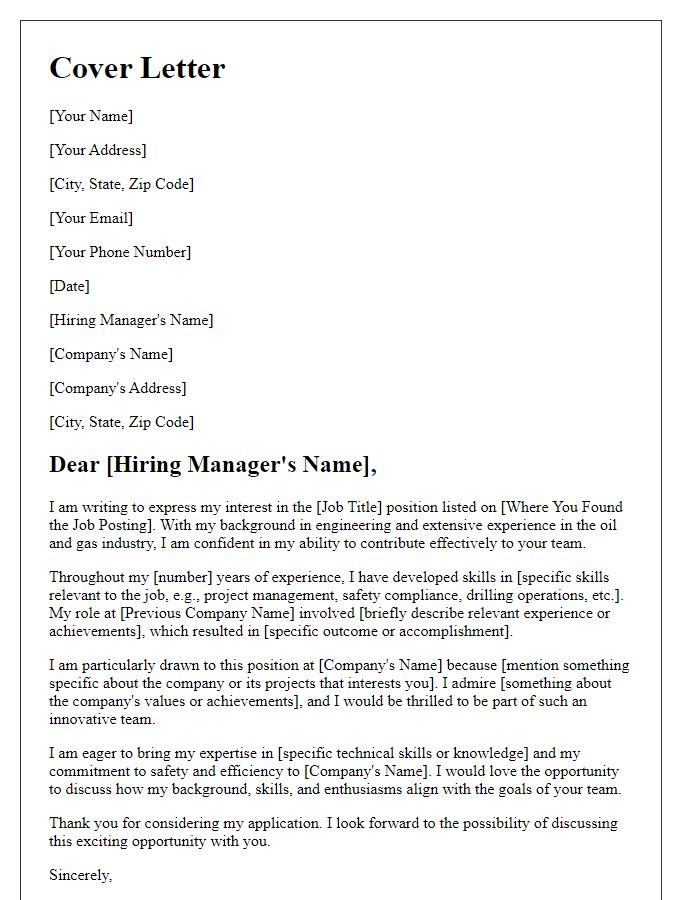
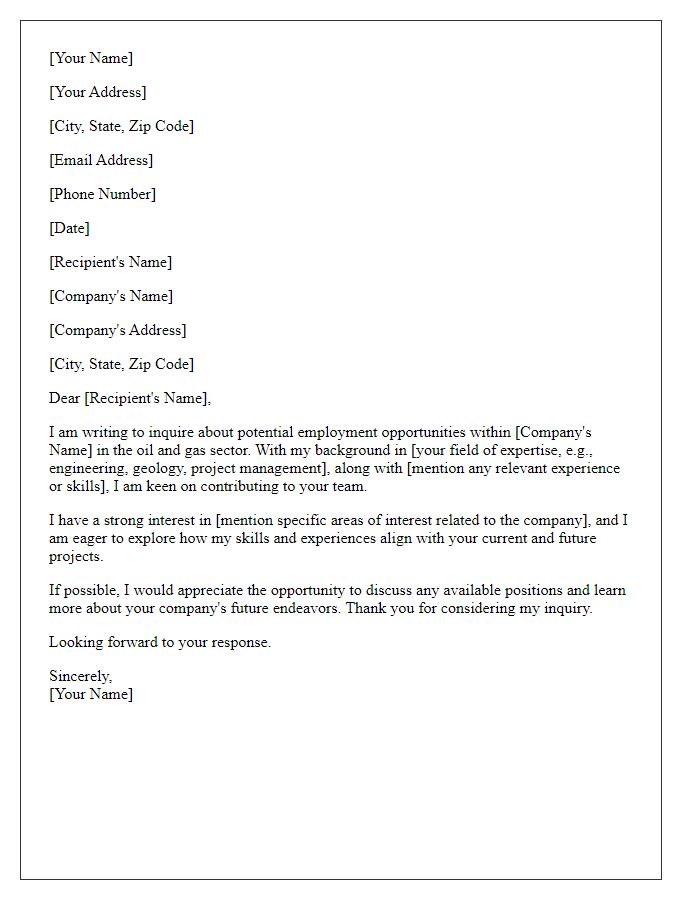
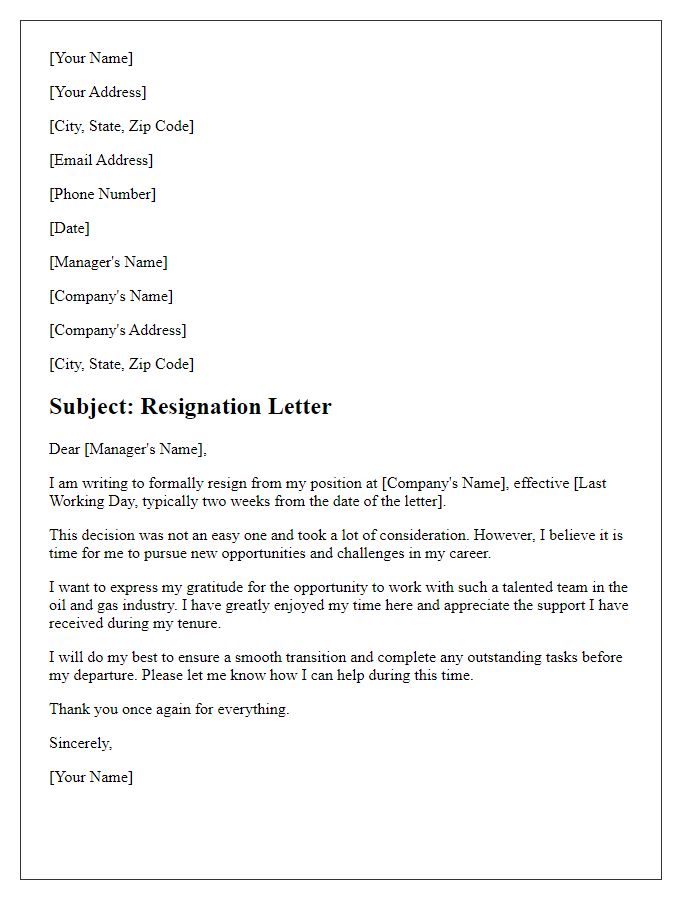
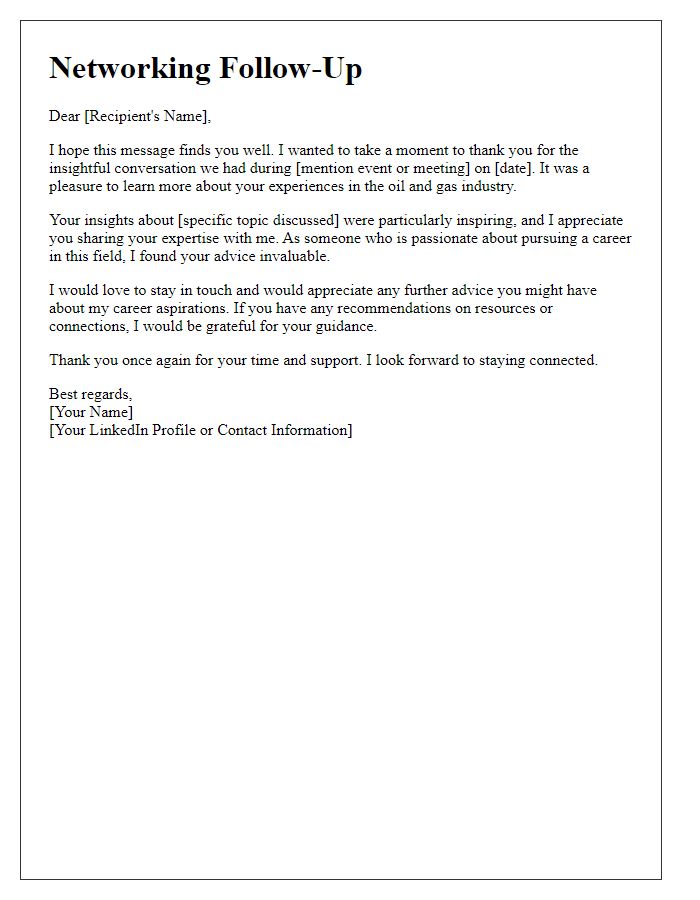
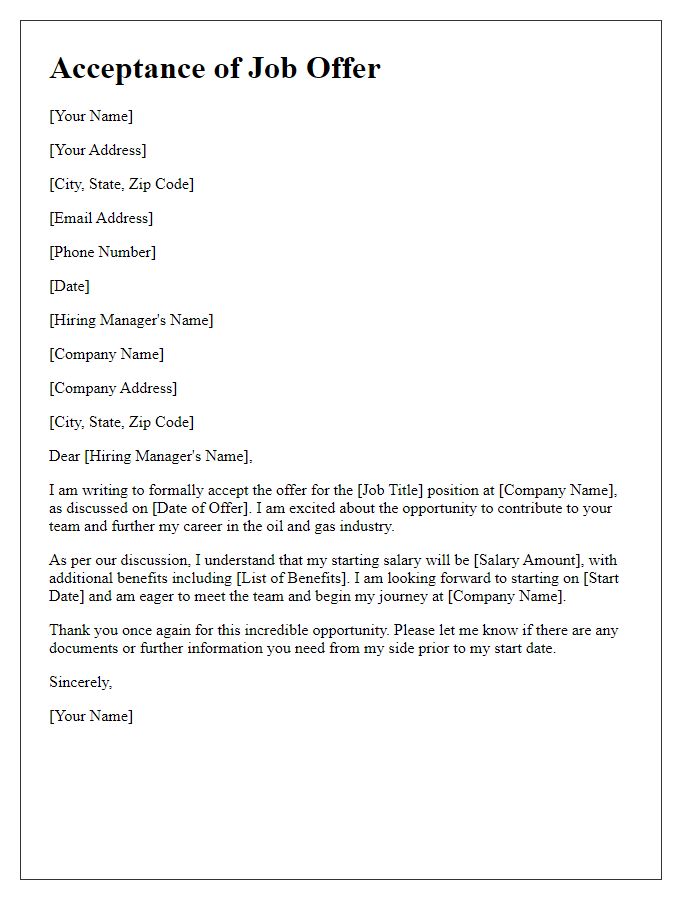
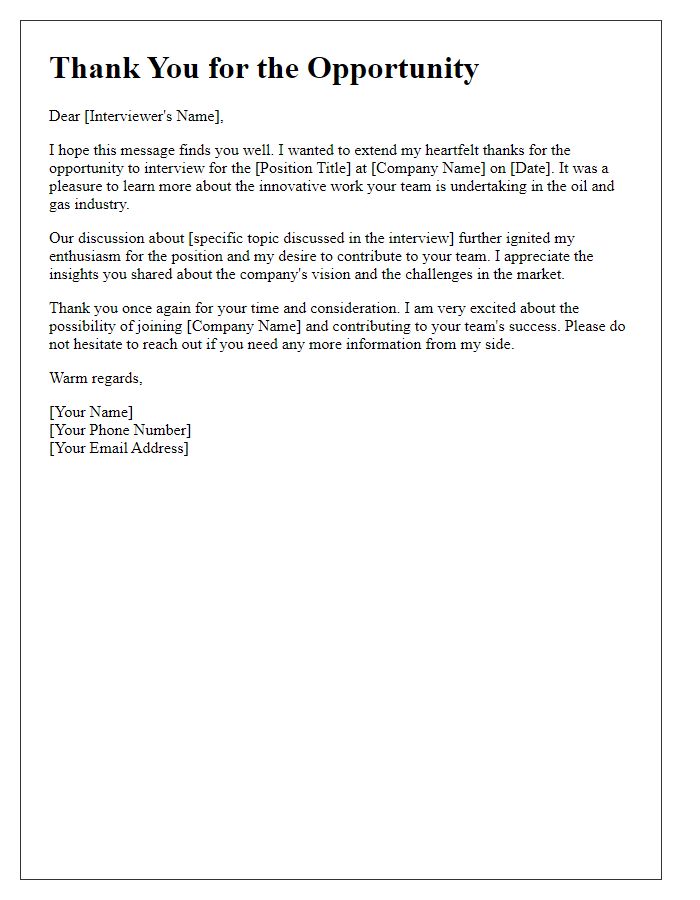
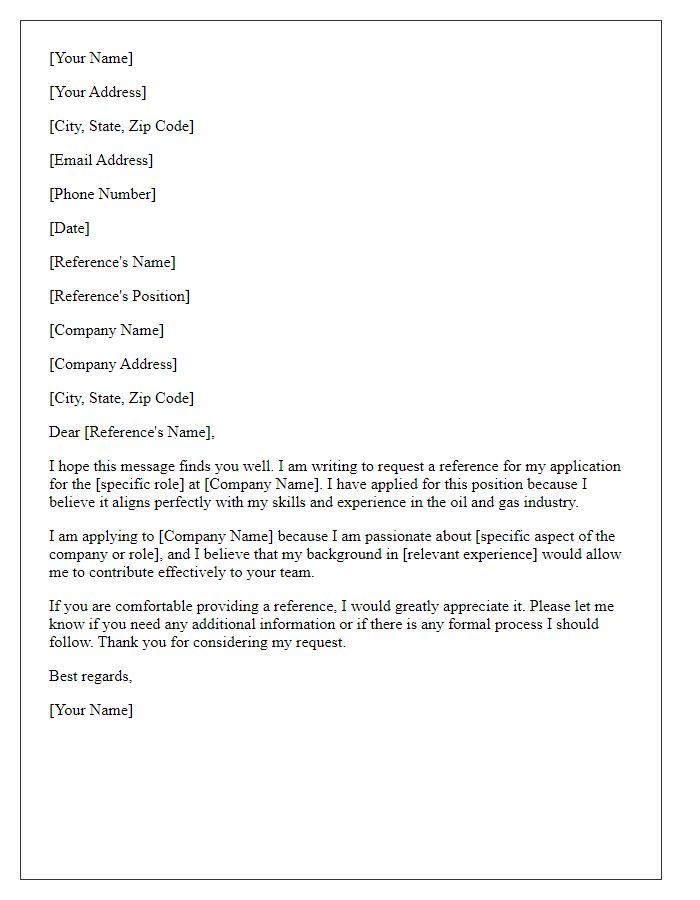
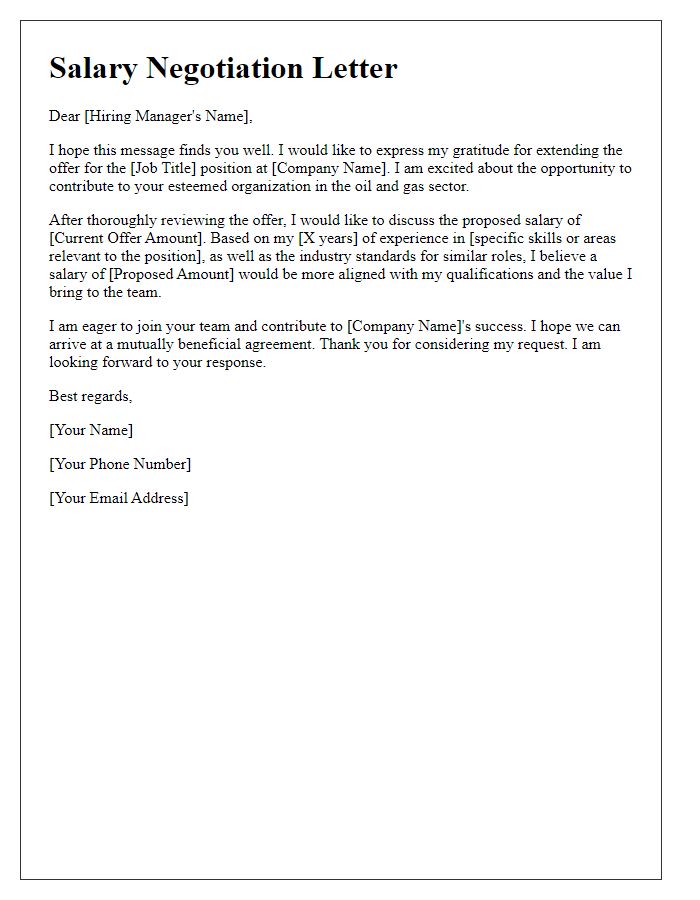


Comments